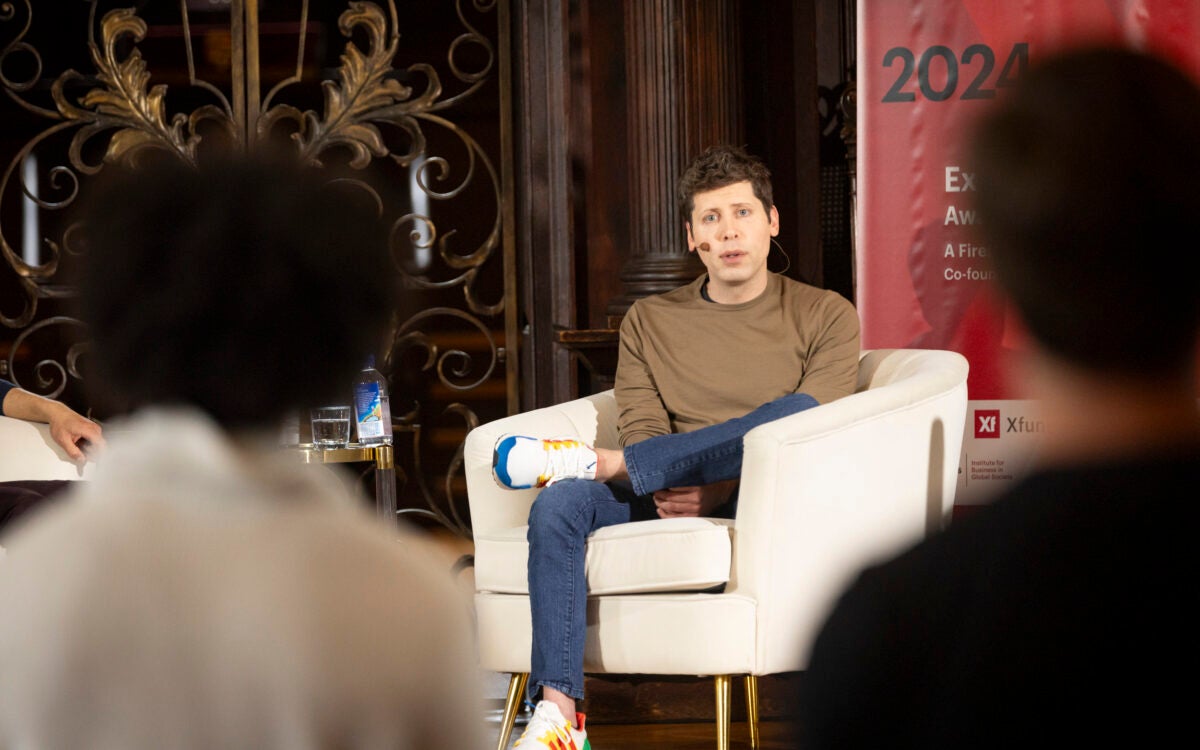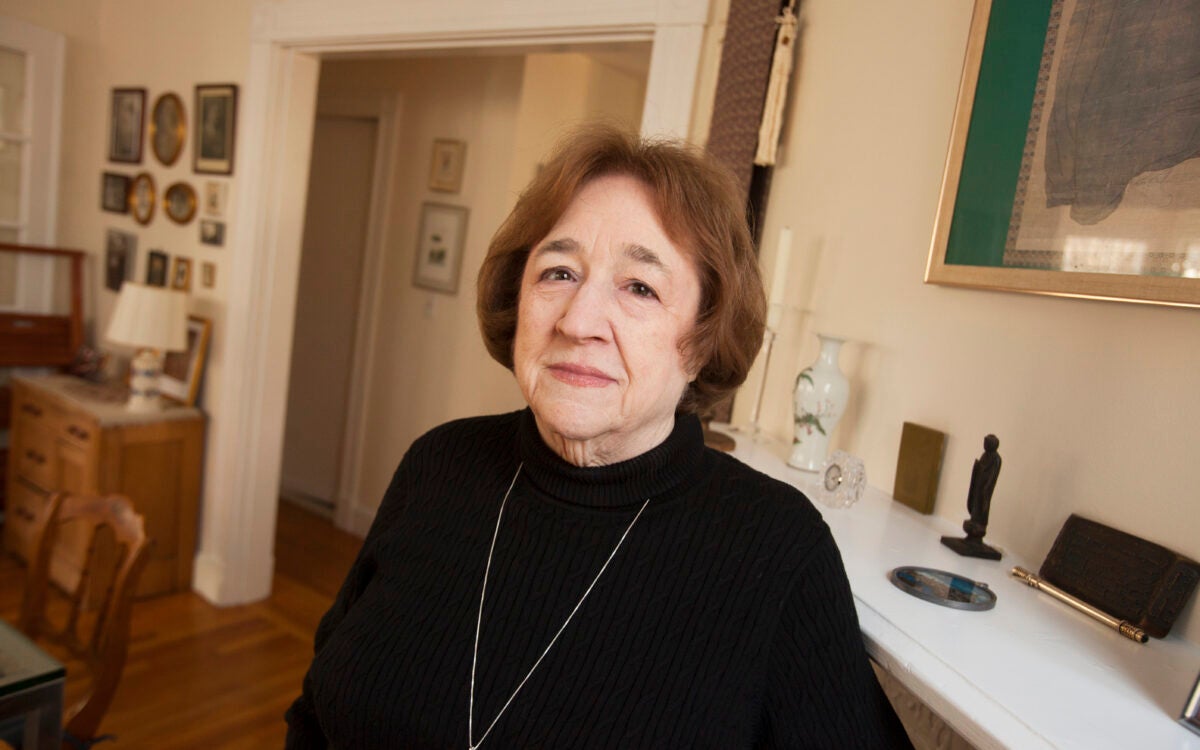Engage, enjoy, get centered
Members of Harvard community offer settling-in advice to the Class of ’18
The Class of 2018 moves into the dorms in and around the Yard on Monday, and returning students, faculty, and administrators have advice for them as they begin College life. For the most part, members of the Harvard community agree that freshmen should use this opportunity to take advantage of the many resources available to them over the next four years and explore new, undiscovered areas of interest.
Below are some of the suggestions offered to the Class of ’18. (Other members of the Harvard community can offer their own advice and words of welcome by tagging social media posts using #WelcometoHarvard and #Harvard2018.)
Drisana Mosaphir ’17
“Don’t hesitate to slow down and take in your surroundings. The rush of the first few weeks can occasionally get overwhelming, but you aren’t likely to get behind on your first assignments or forays into extracurriculars by having a leisurely dinner with someone, or spending time getting to really know your roommates. Taking the time now to make this place feel like home will always help in the long run, and you’ll be surprised how little time it takes for you to feel like you’ve been friends with the people around you forever.”
Rakesh Khurana
Dean of Harvard College
“The best suggestion I could give to the Class of 2018 is to deeply experience the College. There is a lot to do at Harvard. You just don’t have to do it all at once. I hope our next four years together will be a time where we continue to build a community that encourages taking intellectual risks, always having the time to connect deeply with each other, and caring for our own personal well-being and that of others in our community. Each member of our community makes Harvard better just by being who they are.”
Alison Johnson
Professor of History
“Go to office hours. If you’re worried about what to say, just say, ‘Alison Johnson told me to go speak to you during your office hours.’ Your professors work at a university because they love to teach, and they are eager to meet you.”
Sietse Goffard ’15
Undergraduate Council Vice President
“Ask questions — lots of them! Whether you’re in a lecture, an Institute of Politics forum, office hours with your professor, or just in Annenberg dining hall with your peer advising fellow, don’t be afraid to ask whatever question is on your mind. In front of a large audience, it can seem intimidating. But professors often say in class that ‘there are no dumb questions,’ and it’s entirely true. I feel like I’ve learned more by approaching life at Harvard with an open and curious mind.
“Try new activities. College is the best time to break out of your comfort zone and explore. That’s even truer because we’re spoiled for choice at Harvard; there are over 400 student groups on campus that cover basically every type of activity imaginable. So try out things that you never did in high school and might never get the chance to do again after college, whether that’s intramural crew, break dancing, a cappella, Harvard’s i-lab entrepreneurship challenges, robotics, or a special type of community-service group.”
Ned Hall
Professor of Philosophy
“Harvard is such a unique and uniquely intense place, and presents so many challenges to you, who are about to join with it for the next four years, that it’s tempting to want to provide you with loads and loads of advice — a sort of ‘Complete Guide to Thriving at Harvard and Beyond.’ Which would, alas, simply add to the intensity, and present you with the additional challenge of reconciling my advice with the loads and loads of conflicting advice you are bound to receive.
“So forget it. I’ll go meta instead, and offer one simple thought that’s worth internalizing now: For the first time in your life, you will find yourself in a situation where you can pursue only a tiny fraction of the amazing opportunities that are available for you to pursue. (And yes, these are both inside and outside the classroom.) You just have to deal with that fact, even though nothing in your experience has trained you to do so. That means that you’ll need to learn to say ‘no,’ without being ashamed. And you’ll need to ask yourself how you are going to choose what to say ‘yes’ to. Based on what inspires you? On what you are afraid of missing out on? On what you’re convinced is necessary to secure your future success? On what ‘received wisdom’ here tells you to do? On what sparks your curiosity?
“In the final analysis, the answer is entirely up to you. But it’s worth remembering that what you choose to pursue is in some deep ways less important than how you decide to make these choices.”
Emily Zoffer ’16
“Many of my closest friends are people I met second semester freshman year through extracurriculars, and I could have met them months sooner if I’d gotten more involved.
“Professors are nice, friendly people! They want to meet and talk to you, about class or anything else. Take advantage of this chance to connect with some of the most interesting people you’ll ever have the opportunity to meet.
“Learn to navigate the T, and then use it to check out other parts of Cambridge and Boston. Some of the country’s best food, museums, entertainment, and more are right in our backyard. Make sure to take advantage of everything this area has to offer!”
Tom Dingman
Dean of Freshmen
“Lots of thoughts come to mind as I think about possible advice to offer freshmen. One thought is to be open to trying new things ― taking courses in areas heretofore unexplored, making friends where differences are more pronounced than similarities, or learning a new avocational skill.
“At the same time, I’d encourage getting into a routine. When I meet with my advisees, I pass along the following: Keep those things that you liked about your high school routine, like eating breakfast every morning or hitting the gym a few days a week. Try to find a regular sleep schedule, even if you go to bed at an hour that would horrify your parents. Make a schedule for yourself so that you can ensure balance and keep track of classes, extracurricular activities, and meetings. And be sure to leave free time for the little things that make you happy and that may provide perspective.”
Paul Barreira
Director of Harvard University Health Services
“If we look at survey data over the last 10 years, every class consistently says three things interfere with academic performance: stress, lack of sleep, routine illnesses such as colds due to run-down immune systems. All three of those things are interrelated. I think it’s important to not give up things you know worked to relieve stress in the past, like playing an instrument or going to the gym. Don’t give them up now if you know they worked in the past.
“Don’t be a couch potato. Students who exercise more regularly report less stress and anxiety. Those who get no exercise report highest rates of not feeling healthy.
“And I always encourage students to stay connected, whether it’s with friends from home, family, or new friends made here at Harvard. Share how you’re feeling.”




